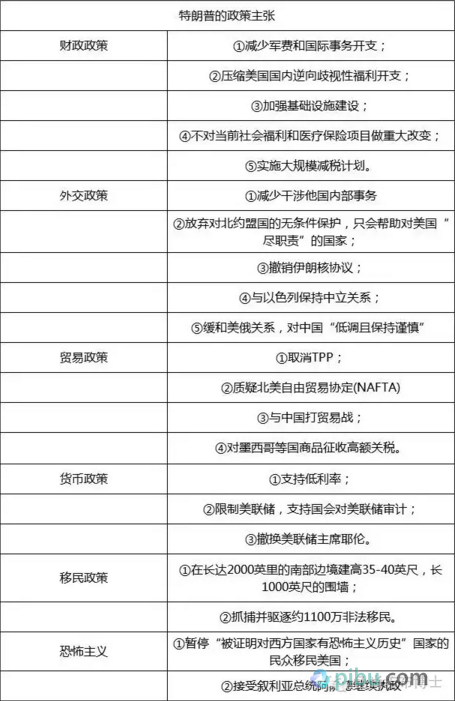At 1.40 a.m. U.S. Eastern time on November 9, 2016, the results of the U.S. presidential election were revealed. Trump won enough electoral votes (270 votes) to win this election. He will be the first real estate president in the history of the United States who has no political experience. What are the major impacts on the Chinese textile industry caused by this election? Speaking of this textile person's most concern, I have to mention the TPP agreement. For textile workers engaged in import and export trade, this term should be familiar. Xiaobian here is still popular science.
What is TPP?
TPP full name "Trans-Pacific Partnership Agreement." The TPP agreement covers about 20 aspects, including provisions on trade in goods, customs procedures, and rules of origin. TPP member countries currently include the United States, Japan, Canada, Chile, Mexico, Peru, Australia, New Zealand, Malaysia, Singapore, Vietnam and Brunei. Since the increase in trade volume between member states after the signing of the agreement will bring about trade transfer among countries in the world.
TTP's impact on the textile industry
As an important part of the U.S. strategy for returning to Asia, TPP is a small WTO that accounts for more than 40% of the global economy. It excludes China as a major Asian economy. Although the U.S. has also adopted a stance to welcome China to the negotiations, Its economic suppression of China is the original intention of the TPP. Although the TPP is not a trade negotiation for the textile industry, more than a dozen member countries attach great importance to the textile field, especially the United States, Vietnam, etc. Therefore, the agreement has aroused widespread concern in the textile industry. The "zero tariff" and "origin rules" in the TPP rules have the greatest impact on the industry's exports.
Zero tariff effect:
Among the TPP member countries, the United States, Japan, Canada and Mexico have not yet established free trade agreements with China. Under the rules of the WTO, developed countries such as the United States and Japan currently have an import tariff of about 10% on China's textile and apparel. In other words, TPP's internal zero-tariff textile industry in China is still exported in accordance with WTO rules, which is about 10% higher than TPP's internal trade. Among TPP member countries, Mexico and Vietnam are similar in competitiveness to our textile and apparel products, so they have certain advantages in tariffs. As the TPP process advances, more and more US textile companies have shifted orders from China to Vietnam. After Vietnam joined the TPP, the tariff on textile exports to the United States fell from 17% to zero tariff. Therefore, even if they purchase Chinese textile and clothing raw materials, Vietnamese companies still have profits.
The impact of the principle of origin:
According to the principle of origin of the TPP, for the finished product of the garment home textile enterprises to want to import and export trade, "starting from the yarn" must be produced in the TPP area. Take Vietnam, Vietnam's advantage is mainly in the garment chain of the industrial chain, the overall industry supporting ability is very poor, most of the surface materials need to be imported from China. The United States and Mexico in the TPP member countries are all major producers of textile raw materials and fabrics. The purpose of the rules of origin is to encourage Vietnam to reduce its imports of apparel fabrics and accessories from China, thereby increasing the import of similar products from the United States and Mexico.
Here, you have to talk about Trump's political ideas. From the following table, we can see that Trump’s rise to power will have a major impact on China’s foreign trade.

In his speech, Trump stated publicly that he would not allow the United States to join the Trans-Pacific Partnership Agreement (TPP), saying that the agreement was a betrayal of the American people and would increase the U.S. trade deficit and reduce U.S. manufacturing jobs. Think that the agreement "is an attack on US business" and is "a bad deal." If the United States withdraws, the agreement will fail, and China will be able to avoid the adverse economic impact of being excluded by this trade agreement.
This election is very beneficial to the creation of a good international environment for the Chinese textile industry. However, we must also soberly realize that the textile and clothing industry is not a sophisticated industry and can be very reproducible. However, even if the TPP is not a scourge, The influence of China's textile and garment industry must not be underestimated. This time in the U.S. election, the TPP is on the verge of surpassing the front line. For the TPP itself, China has its own economic countermeasures. This is the gospel of the Chinese textile industry, but the Chinese textile industry must not be slack! Textile companies should establish a stronger sense of crisis. Under the spur of any environment, our textile companies can only make more efforts to reform, innovate, and accelerate internationalization, so as to ensure that orders are not completely transferred, leaving room for themselves!
For more content, please follow this site
Jiangmen Mingcheng Button Co., Ltd. , https://www.btn-button.com